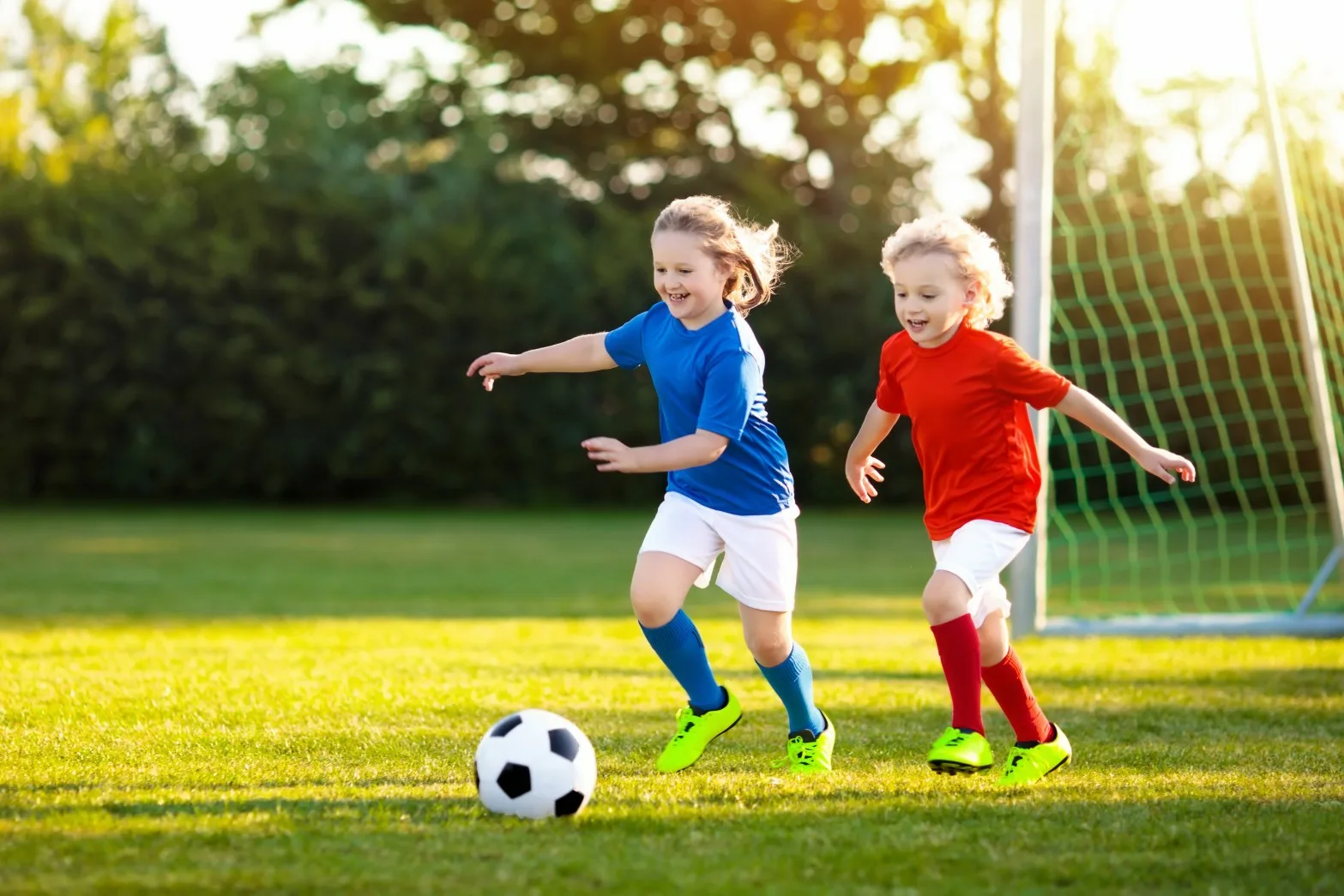How Youth Sports Foster Social Skills, Confidence, and Life Skills in Children
Participating in youth sports goes far beyond physical fitness. It offers children an opportunity to develop social skills, build confidence, foster teamwork, and learn essential life skills that can shape their future. Youth Rescue Project in New York, is dedicated to supporting youth through sports programs that emphasize personal growth, social engagement, and a healthy lifestyle.
Sports provide a structured environment where kids can interact with peers, develop friendships, and navigate the challenges of competition and collaboration. Through these experiences, children gain essential skills that extend beyond the field, preparing them for success both in school and in life.
Enhancing Confidence and Self-Esteem Through Youth Sports
Confidence is a critical component of a child’s development. Youth sports offer a platform for kids to challenge themselves, achieve goals, and recognize their own capabilities.
Setting and Achieving Goals
Participation in organized sports teaches children how to set realistic goals and work consistently toward them. Whether it’s improving a personal best in track or mastering a new skill in basketball, achieving these milestones fosters self-esteem and a sense of accomplishment.
Overcoming Challenges and Building Resilience
Sports provide a safe space for children to face challenges, handle setbacks, and develop resilience. Youth Rescue Project encourages young athletes to embrace both wins and losses as learning opportunities, helping them build confidence in their ability to handle obstacles.
Developing Essential Life Skills Through Team Sports
Team sports are not just about scoring points, they’re about learning valuable life skills that help children succeed in all areas of life.
Communication Skills
Effective communication is key in sports, whether it’s calling for a pass, coordinating strategies, or encouraging teammates. These interactions help children develop strong verbal and non-verbal communication skills that are essential in social and academic settings.
Leadership and Responsibility
Being part of a team teaches children how to take on leadership roles and be responsible for their actions. Leadership in sports often translates to leadership in school projects, group activities, and other collaborative efforts.
Time Management and Discipline
Balancing practice schedules, games, and schoolwork teaches children valuable time management skills. Discipline cultivated through sports encourages kids to prioritize responsibilities, stick to routines, and develop a strong work ethic.
Fostering Social Interaction and Friendships Through Sports
Youth sports provide a natural environment for kids to meet peers with similar interests, promoting social development and lifelong friendships.
Building Peer Relationships
Through shared experiences in practice and competition, children learn to collaborate, support each other, and celebrate achievements together. These interactions strengthen social bonds and help kids feel a sense of belonging.
Learning Teamwork and Collaboration
Team sports emphasize the importance of working together to achieve common goals. Children learn to value diverse perspectives, cooperate with others, and contribute meaningfully to a group effort.
Managing Conflict and Developing Empathy
Playing sports involves navigating disagreements and handling differences in opinion. Youth Rescue Project teaches children strategies for resolving conflicts and developing empathy for teammates, which are crucial skills for social and emotional growth.
Promoting Emotional Health and Stress Relief
Sports participation also positively impacts children’s emotional well-being.
Reducing Anxiety and Stress
Physical activity helps reduce stress and anxiety by releasing endorphins, improving mood, and providing an outlet for pent-up energy. Children engaged in sports often report feeling happier and more relaxed after practices and games.
Boosting Self-Regulation and Emotional Control
Sports require children to manage emotions during wins, losses, and challenges. This builds emotional regulation skills that can be applied in school, at home, and in social situations.
Encouraging a Positive Mindset
Experiencing success and learning from failure in sports fosters a growth mindset. Children develop perseverance, patience, and optimism, understanding that effort and practice lead to improvement over time.
Encouraging Healthy Habits and Active Lifestyles
Participation in sports lays the foundation for long-term health and wellness.
Physical Fitness and Healthy Growth
Regular engagement in sports promotes cardiovascular health, muscular development, coordination, and overall physical fitness. These benefits contribute to healthy growth and reduce the risk of obesity and chronic diseases.
Nutrition Awareness
Youth Rescue Project integrates nutrition education into sports programs, helping children understand the importance of fueling their bodies properly for energy, recovery, and overall health.
Lifelong Commitment to Activity
Children who develop positive experiences with sports are more likely to maintain an active lifestyle into adulthood. Early participation encourages lifelong habits that benefit physical, mental, and social health.
Inclusive Youth Sports Programs and Their Social Impact
Inclusive sports programs ensure that every child, regardless of skill level or background, has an opportunity to participate and benefit.
Promoting Diversity and Inclusion
Inclusive programs foster understanding and respect among children from diverse backgrounds. Children learn to value differences, appreciate teamwork, and develop cultural awareness through shared experiences.
Supporting Children with Special Needs
Youth Rescue Project offers tailored programs for children with varying abilities, ensuring that every child can participate safely and meaningfully. Adaptive sports programs promote confidence, skill development, and social inclusion for all participants.
Community Engagement and Social Responsibility
Participation in youth sports helps children feel connected to their community. Through volunteering, mentorship, and local events, children learn the importance of giving back and contributing to a supportive environment.
The Role of Coaches and Mentors in Youth Sports Development
Coaches and mentors play a pivotal role in helping children develop social skills, confidence, and life lessons.
Positive Role Modeling
Effective coaches demonstrate leadership, integrity, and empathy, providing children with examples of positive behavior and decision-making.
Mentorship and Guidance
Mentors support personal growth, help children navigate challenges, and encourage resilience, confidence, and self-expression.
Creating a Safe and Encouraging Environment
Youth Rescue Project ensures that all sports programs foster a safe, supportive, and inclusive environment where children feel valued and motivated to grow.
Measuring Success Beyond the Scoreboard
Youth sports success isn’t only about winning games, it’s about personal growth, social development, and life skills acquisition.
Social Skills Development
Children learn to communicate, collaborate, and navigate social dynamics, skills that are critical for academic and career success.
Confidence and Self-Esteem
Achievement, practice, and overcoming challenges instill confidence and a positive self-image.
Problem-Solving and Critical Thinking
Sports encourage children to make quick decisions, assess situations, and think critically under pressure.
Tips for Parents to Support Their Child’s Participation
Parents play an essential role in maximizing the benefits of youth sports.
Encouraging Participation Without Pressure
Foster enjoyment and skill development rather than solely focusing on competition and winning.
Emphasizing Effort Over Outcome
Celebrate hard work, perseverance, and improvement, which builds confidence and resilience.
Promoting Balance and Healthy Routines
Support your child’s sports involvement while ensuring adequate rest, academics, and social activities.
Youth Rescue Project: Transforming Lives Through Sports
At Youth Rescue Project, we are committed to empowering children through structured sports programs that build confidence, teamwork, and essential life skills. Our mission is to create safe, inclusive, and engaging environments where children can grow socially, emotionally, and physically.
Our programs focus on:
- Developing leadership and communication skills
- Encouraging teamwork and collaboration
- Promoting physical fitness and healthy habits
- Supporting emotional resilience and stress management
By participating in our programs, children not only gain athletic skills but also develop the social and emotional intelligence necessary for lifelong success.
Conclusion: Youth Sports as a Catalyst for Social Growth and Life Skills
Youth sports are more than just games, they are a powerful tool for social development, confidence-building, and life skills acquisition. Programs like those offered by Youth Rescue Project provide children with opportunities to engage socially, build friendships, overcome challenges, and develop essential skills that extend far beyond the playing field.
Encouraging children to participate in sports fosters:
- Self-confidence and resilience
- Social skills and teamwork
- Leadership and problem-solving abilities
- Healthy habits and active lifestyles
Investing in youth sports is investing in your child’s future. By fostering environments that emphasize growth, inclusion, and social engagement, Youth Rescue Project helps children thrive both on and off the field.

